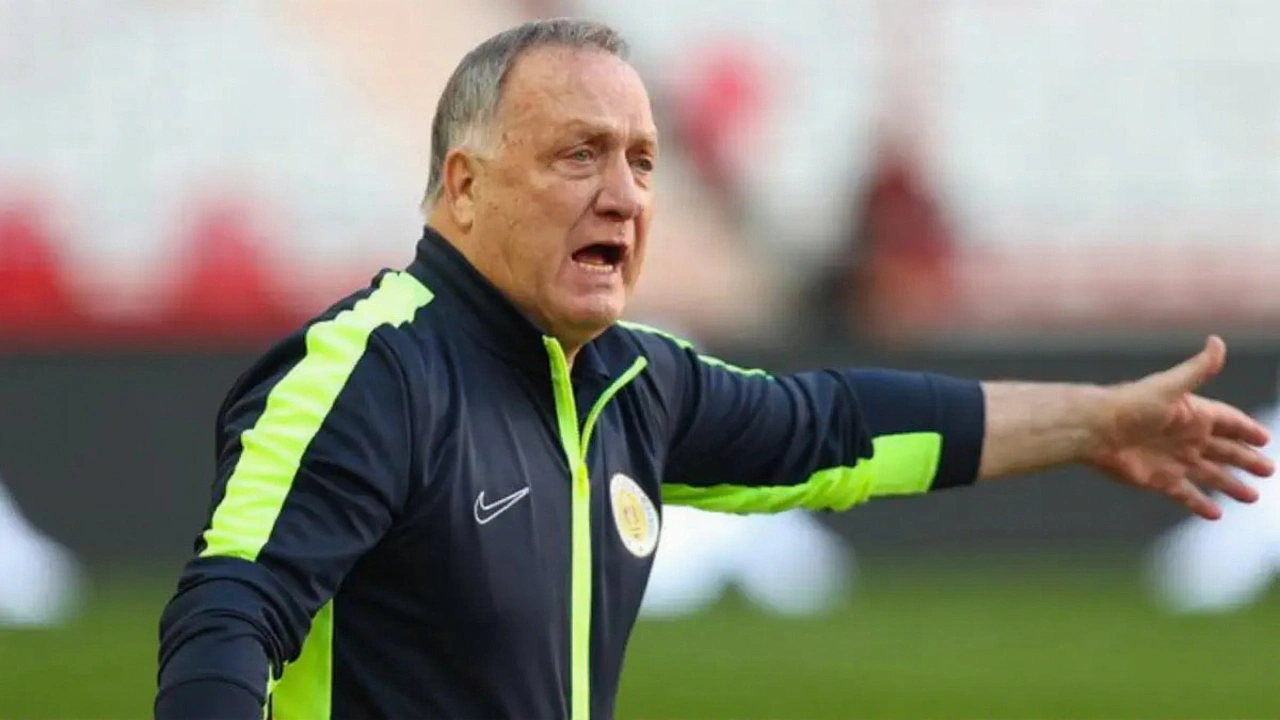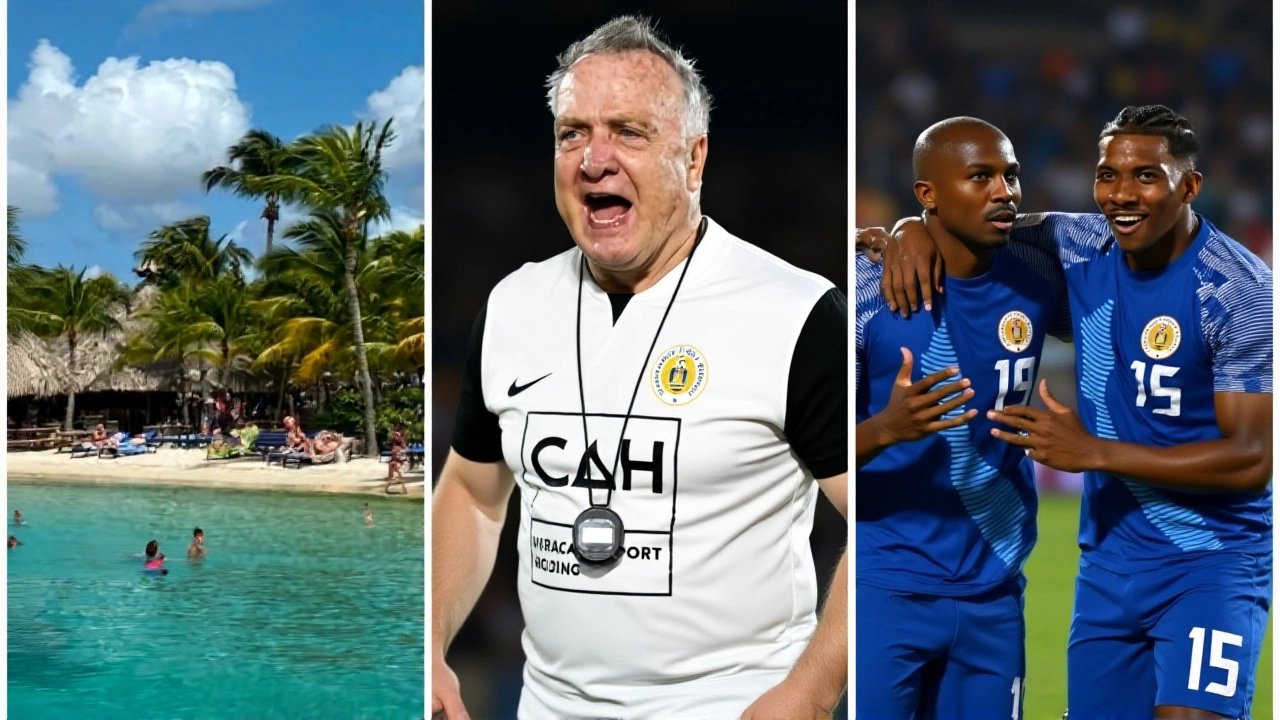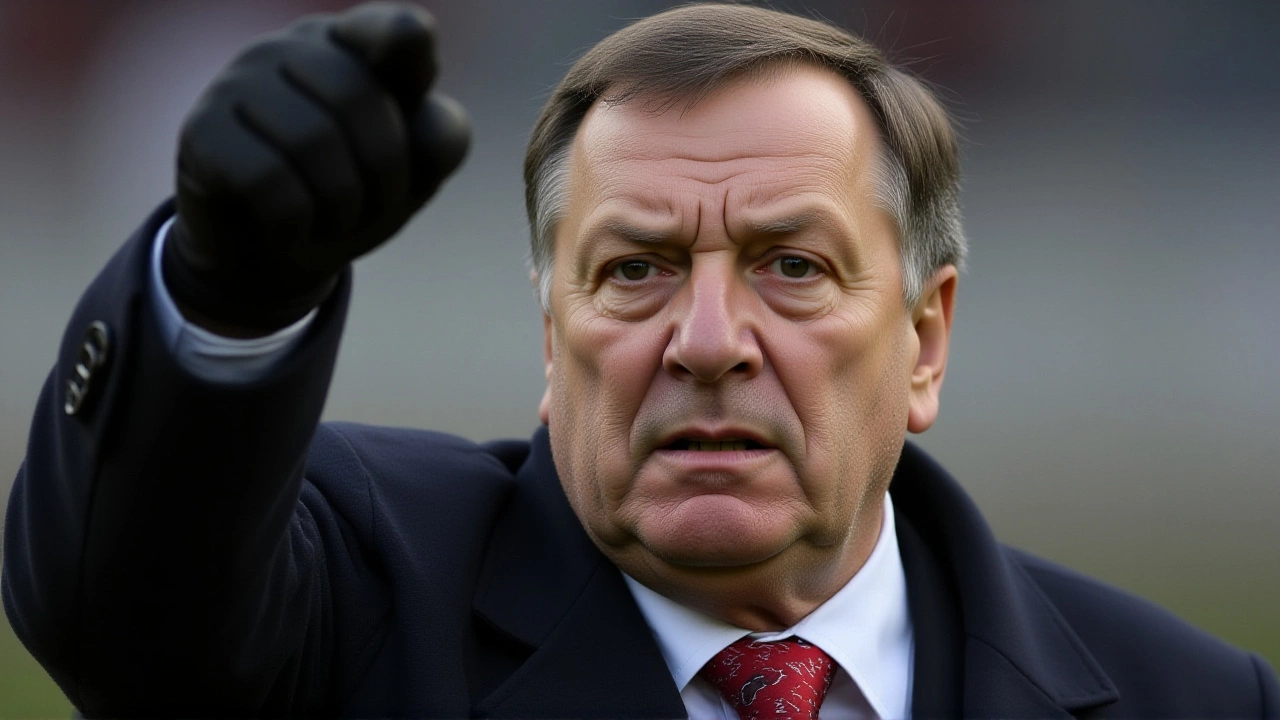At 77, Dick Advocaat is once again at the center of football’s most improbable dreams — this time, guiding the tiny Caribbean nation of Curaçao toward a historic 2026 FIFA World Cup qualificationKingston, Jamaica. But just days before their make-or-break clash, Advocaat vanished from the training camp, leaving behind a team on the brink of football history and a federation scrambling to hold the line.
A Manager’s Exit, A Nation’s Hope
On November 20, 2025, Dick Advocaat quietly stepped away from the Curaçao national team’s base in Kingston, Jamaica. No public explanation was given — only a terse statement from FFK (Federashon Futbol Korsou) President Gilbert Martina: "Private circumstances." The federation added they "fully support" him. No details. No timeline. Just silence.
But the stakes couldn’t be higher. Curaçao, with a population of just 160,000, needs a draw or win against Jamaica on Tuesday night to become the smallest nation ever to qualify for a FIFA World Cup. That’s smaller than Monaco, Liechtenstein, or San Marino — nations that have never made it past qualifying. For Curaçao, this isn’t just a match. It’s a chance to rewrite the rules of global football.
The Coaching Continuity
Advocaat didn’t abandon ship — he handed it off. Assistant coaches Dean Gorré and Cor Pot are now running daily sessions, tactics, and team meetings. Both are Dutch, both have deep ties to the club scene in the Netherlands, and both know Advocaat’s system inside out. "They’re in constant contact," Martina confirmed. "He’s still making key decisions on lineup, substitutions, and opponent analysis."
It’s an unusual arrangement — a head coach operating remotely while his team prepares for a game that could define a generation. But for Advocaat, it’s not unprecedented. He’s managed through injuries, political turmoil, and even financial collapse. He knows how to lead from afar.

A Legacy Built in Britain
Advocaat’s career reads like a who’s who of European football management. He twice led the Netherlands national team. He coached South Korea at the 2002 World Cup. He steered Russia to Euro 2008. But for British fans, his name echoes loudest at two clubs: Rangers FC and Sunderland.
In 1998, he became the first foreign manager in Rangers’ 128-year history. The club had gone 12 years without a trophy. Advocaat arrived with a blank check from chairman David Murray and signed stars like Giovanni van Bronckhorst and Andrei Kanchelskis. He won two league titles and a Scottish Cup — but left in 2001 amid growing financial strain. Years later, when Rangers entered administration in 2012, Advocaat stood by his spending: "I didn’t think they’d go bankrupt."
Then came Sunderland in 2015. Hired mid-season after Gus Poyet’s dismissal, he inherited a team fighting relegation. His first match? A 1–0 loss to West Ham. His final match? A 2–1 win over Manchester United. He saved them from the drop — barely. Just 11 games. But he did it.
Curaçao’s British Connection
There’s a quiet symmetry here. Curaçao’s squad is packed with players who learned their trade in England. Juninho Bacuna, once at Rangers and Birmingham City, now captains the side. His brother Leandro played for Aston Villa. Sontje Hansen, who scored seven goals in a 7–0 rout of Bermuda, came through Middlesbrough’s academy. These aren’t just players — they’re bridges between British football infrastructure and Caribbean ambition.
Advocaat didn’t just assemble a team. He stitched together a diaspora. He’s the conductor of a multicultural orchestra where Dutch discipline meets Caribbean flair — all under the banner of a tiny island that dreams of playing on the world’s biggest stage.

What’s Next?
If Curaçao draws or beats Jamaica, they’ll qualify for the 2026 World Cup as the smallest nation ever. That’s 160,000 people versus Russia’s 144 million. It’s a David-and-Goliath story no scriptwriter would dare invent.
But Advocaat won’t be there to see it. Not in person. His absence is a mystery — and a risk. Will his absence unsettle the squad? Or will his legacy, his reputation, his quiet authority carry them through?
Either way, the world will be watching. Because football, at its best, isn’t about size. It’s about heart. And right now, Curaçao has more heart than most.
Frequently Asked Questions
Why is Curaçao’s potential World Cup qualification so historic?
Curaçao has a population of just 160,000 — smaller than any nation that has ever qualified for the World Cup. Even Monaco and Liechtenstein, which have never made it, have larger populations. A qualification would break a 92-year barrier in international football, proving that size doesn’t dictate success.
What role do British-trained players play in Curaçao’s team?
Players like Juninho Bacuna, Leandro Bacuna, and Sontje Hansen were developed in English academies and brought professional discipline to Curaçao’s squad. Their experience in the Premier League and Championship levels gives the team tactical maturity that’s rare for Caribbean nations, making them more competitive against stronger opponents.
Has Advocaat ever managed remotely before?
Not exactly like this, but Advocaat has managed through illness and travel restrictions. In 2002, he led South Korea via video calls during a critical phase of World Cup prep after falling ill. His ability to delegate while maintaining control is part of why he’s still coaching at 77 — and why FFK trusts him to guide them from afar.
What happens if Curaçao qualifies but Advocaat doesn’t return?
FFK has already confirmed that Dean Gorré and Cor Pot will remain in charge regardless of Advocaat’s return. If Curaçao qualifies, the federation plans to offer him an advisory role, possibly as technical director — allowing him to step back while ensuring continuity. His legacy, not his presence, is now the team’s foundation.
Why did Advocaat leave Rangers in 2001?
Advocaat resigned after a 1–1 draw with Hibernian, citing personal reasons and a desire to return to the Netherlands. But behind the scenes, tensions were rising over transfer spending and board interference. He briefly became general manager before leaving entirely — a move that foreshadowed Rangers’ later financial collapse.
How does Curaçao’s current World Cup campaign compare to past Caribbean efforts?
No Caribbean nation has ever qualified for the World Cup through the CONCACAF qualifiers. Jamaica came closest in 1998, losing in a playoff. Trinidad and Tobago made it in 2006, but with a population of 1.4 million — nearly nine times Curaçao’s size. This is uncharted territory — and if they succeed, it will be the greatest underdog story in World Cup history.
